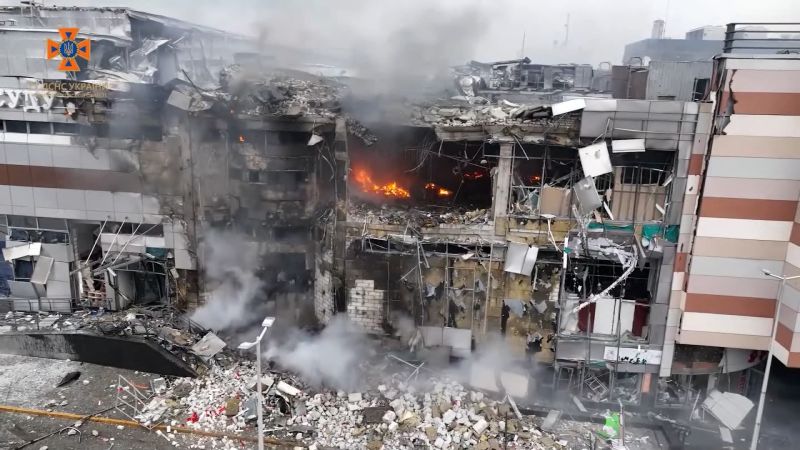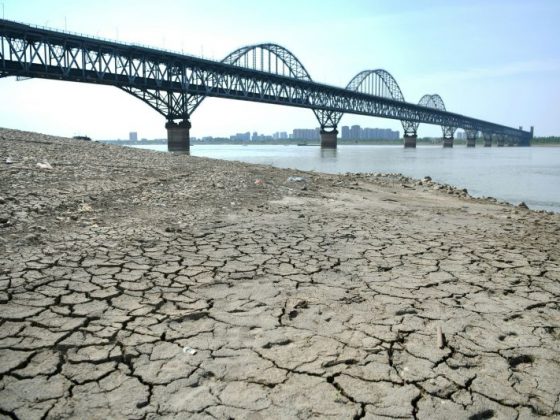Russia has fired North Korean-supplied short-range ballistic missiles into Ukraine twice in the past week, an “escalation” of Pyongyang’s support for Moscow that has serious implications for both the war in Europe and security on the Korean Peninsula, the White House said Thursday.
The North Korean-made missiles were fired at Ukraine on December 30 and January 2, National Security Council spokesperson John Kirby said at a White House briefing. They were among at least 500 missiles and drones fired at Ukraine around the New Year’s holiday, according to Kyiv.
The December 30 attack involved a lone missile that fell into a field, while Russia’s January 2 assault involved multiple missiles, he said. The impacts of missiles fired on January 2 are still being assessed, Kirby said, adding they were part of a “massive” Russian assault.
“Due in part to our sanctions and export controls, Russia has become increasingly isolated on the world stage and they’ve been forced to look to likeminded states for military equipment,” Kirby said in the briefing. “As we’ve been warning publicly, one of those states is North Korea.”
“This is a significant and concerning escalation in the DPRK’s support for Russia,” Kirby said, using the acronym for North Korea’s official name, the Democratic People’s Republic of Korea.
“We expect Russia and North Korea to learn from these launches,” Kirby said.
Analysts echoed that sentiment, saying the use of North Korean missiles on the battlefield in Ukraine can give Pyongyang data it can’t get from a testing program that has seen dozens of the weapons fired over the past few years under the missile program of leader Kim Jong Un.
“It will be interesting to see how these missiles perform in a more operational environment and outside of North Korea’s propaganda machine, particularly any indication of accuracy and indeed the guidance systems utilized,” said Joseph Dempsey, research associate for defense and military analysis at the International Institute for Strategic Studies.
Ankit Panda, senior fellow in the Nuclear Policy Program at the Carnegie Endowment for International Peace, said Russia’s use of the missiles against Ukraine allows North Korea to gather data on how they penetrated defenses similar to those South Korea and the United States might field on the Korean Peninsula.
“In technical terms, I suspect the North Koreans will be quite interested in how their missiles fare against Western missile defense systems,” he said.
Speaking at the White House, Kirby said the consequences for South Korea and the region go beyond Pyongyang’s ability to refine its missile programs.
“In return for its support we assess that Pyongyang is seeking military assistance from Russia including fighter aircraft, surface-to-air missiles, armored vehicles, ballistic missile production equipment, war materials and other advanced technologies,” Kirby said.
“This would have concerning security implications for the Korean Peninsula and the Indo-Pacific region.”
The areas Kirby ticked off are ones where North Korea’s adversaries in East Asia – most notably South Korea, the US and Japan – are considered to have big advantages over the isolated nation.
For instance, all three possess advanced F-35 stealth fighter jets that would give them big advantages in trying to breach North Korean air defenses. But if Pyongyang were to acquire more modern Russian surface-to-air missiles with advanced tracking radars to go with them, the F-35 advantage could be cut back significantly.
Russia is also likely sending money to Pyongyang, said Lee Jang Wook, research fellow at the Center for Security and Strategy in the Korea Institute for Defense Analyses (KIDA).
“And this revenue can be another monetary support to mass create more nuclear weapons,” Lee said.
Meanwhile, Kirby and the analysts say Russia is likely seeing immediate benefits from any influx of North Korean armaments.
“The North Korean SRBMs are unlikely to provide a qualitive edge over anything already in the Russian inventory. Instead, the main benefit being quantitative, by boosting Russia’s depleting missile stocks and providing an additional supply line,” Dempsey said.
The North Korean missiles “will allow Russia to continue deep strikes without drawing down its own stocks of missiles,” Panda said. The North Korean missiles have a range of up to 900 kilometers (about 550 miles), Kirby said, allowing them to be fired from deeper in Russian territory where Moscow’s air defenses can keep launchers better protected from Ukrainian counterstrikes.
And a North Korean supply has another advantage for Moscow, Panda said.
“Given the land border between Russia and North Korea, it will be nigh impossible for Western states to interrupt transfers as long as Pyongyang is willing to continue cooperating with Russia,” he said.
For Ukraine, it all adds up to a troubling picture ahead.
“We anticipate that Russia will use additional North Korean missiles to target Ukraine’s civilian infrastructure and to kill innocent Ukrainian civilians,” Kirby said.


